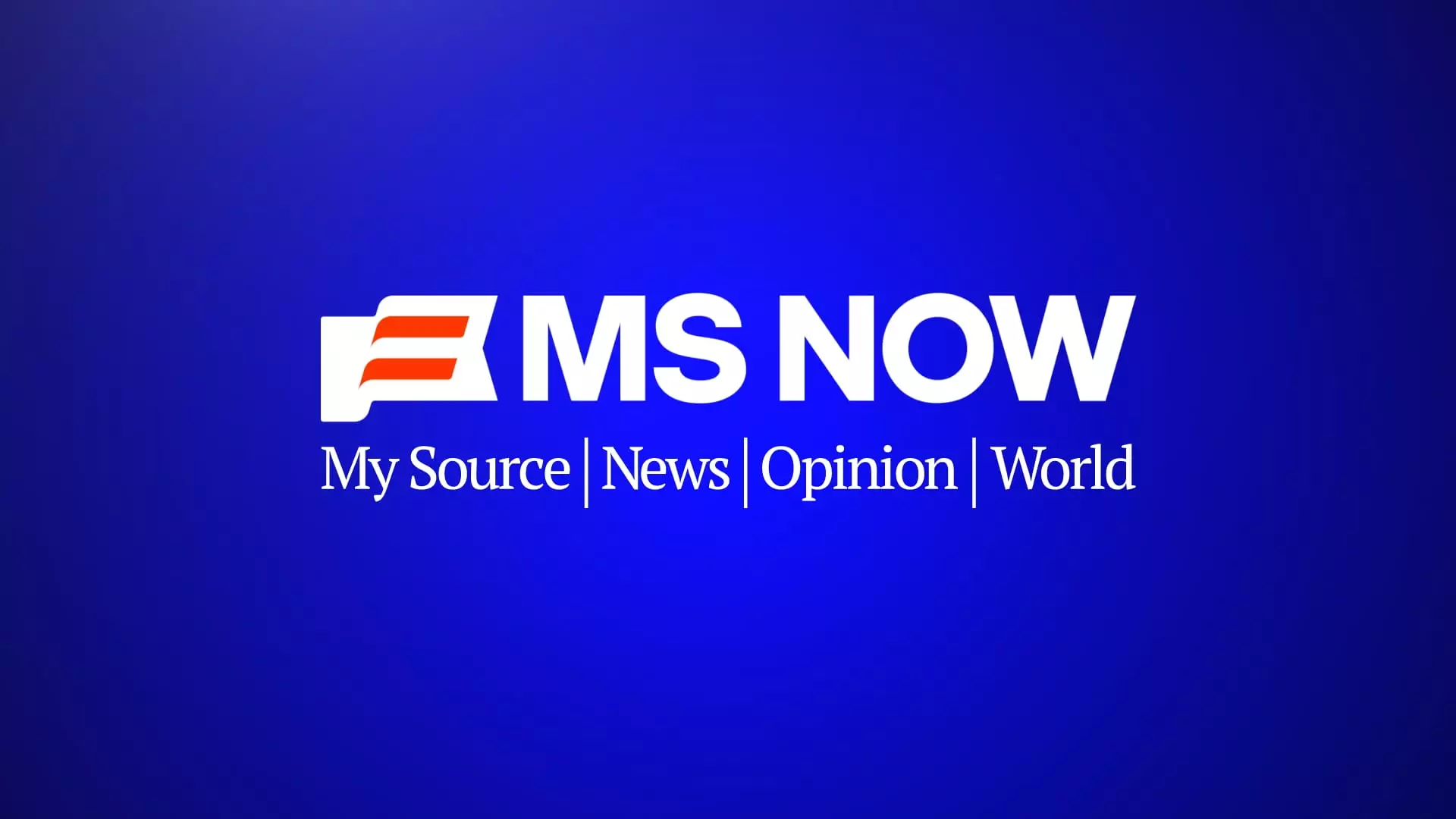MSNBC’s decision to shed its iconic peacock logo and rename itself as “My Source News Opinion World” (MS Now) signals a significant turning point for the network. On the surface, this move appears to be a bold assertion of independence, promising viewers a fresh, unencumbered voice distinct from NBC News. However, digging deeper reveals a complex political and corporate landscape fraught with potential pitfalls. The shift could either symbolize a necessary evolution in a media environment demanding unique identities or represent a misguided gamble that risks alienating its loyal audience base.
From a liberal centrist perspective, such drastic rebranding raises questions about authenticity and trust. MSNBC has long positioned itself as a champion of progressive values, providing a platform for diverse viewpoints within a largely corporate-controlled mainstream media ecosystem. The pursuit of branding independence does not inherently guarantee journalistic integrity; in fact, it might tempt the network towards sensationalism or partisan skew if driven more by corporate restructuring than genuine editorial vision. If the new identity emphasizes opinion over objective reporting, it could deepen polarization rather than bridge divides—the very outcome many centrist liberals seek to avoid.
Furthermore, the rebranding comes amidst strategic corporate maneuvers, notably Versant’s move to separate from NBCUniversal. While a fresh identity can invigorate a franchise, the timing—aligned with a spinoff planned for the end of the year—raises skepticism. Are these changes motivated by a desire to genuinely recalibrate journalistic integrity, or are they a corporate tactic to enhance market value and appeal to specific investor interests? This ambiguity underscores the danger of allowing commercial ambitions to overshadow journalistic standards, especially in an era where trust in the media is already fragile.
Innovation or Concession? The Political Implications
The focus on establishing a more independent, opinion-driven platform signals a broader shift in how media corporations approach political discourse. In the current polarized climate, media outlets are under increasing pressure to cater to niche audiences, often at the expense of balanced reporting. MSNBC’s emphasis on creating a “modern newsgathering operation” and the hiring of journalists from outlets like CNN and Politico suggests a strategic pivot to deepen engagement with a specific audience segment—likely those leaning left politically but seeking more dynamic or personalized content.
Yet, this strategy walks a tightrope. While more tailored content can foster loyalty and relevance, it risks amplifying echo chambers and further entrenching political divisions. For liberals and centrists who value a nuanced understanding over partisan soundbites, this rebranding may appear as a capitulation to pressure groups or a response to market forces that favor sensationalism. Instead of fostering informed debate, such shifts could accelerate the decline of shared democratic discourse—an outcome that should give anyone concerned about the health of democracy pause.
The decision to rename other brands like CNBC without an NBCUniversal connection, and to reorganize sports and digital brands, indicates a broader rethinking of corporate branding strategies. These moves seem to prioritize distinctiveness and independence, but their political undertones are undeniable. They reflect a shifting landscape where media outlets are not merely reporting facts but actively constructing identities that align with certain ideological or commercial objectives. For liberals who seek media transparency and accountability, this raises fears of increasing consolidation around opinion-driven narratives at the expense of objective journalism.
Will This Transformation Foster Innovation or Signal Decline?
The introduction of a new branding campaign and logo, coupled with the move to establish a wholly independent MSNBC, exemplifies a high-stakes gamble. Can these reforms foster genuine innovation in news delivery and governance, or are they just superficial changes meant to mask deeper issues? The network’s current prominence, with an average of 1.2 million prime-time viewers, underscores its importance in shaping public opinion. This power amplifies the responsibility to uphold journalistic standards, not merely chase market share through provocative branding.
In the end, this rebranding offers an opportunity—an inflection point where MSNBC could redefine its role in American political life. It could embrace its liberal centrist roots, providing inclusive, fact-based discourse that bridges divides, or it could descend further into partisan extremes, transforming into a political tool for ideological victories. For those advocating for a balanced, inclusive media space, the challenge will be ensuring that this bold corporate gamble does not come at the expense of democratic health and social cohesion.
Ultimately, whether the new MSNBC—rechristened as MS Now—becomes a beacon of integrity or a cautionary tale of corporate hubris hinges on how it manages its editorial independence amidst commercial pressures. This transformation could either be a pioneering step towards a more transparent, accountable media landscape or a reckless detour into the pitfalls of spectacle-driven journalism.

